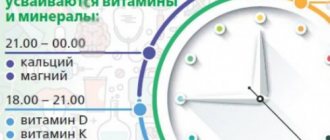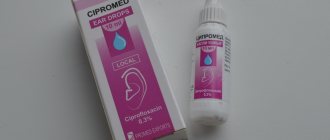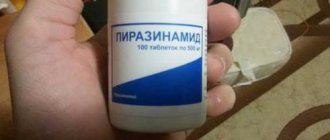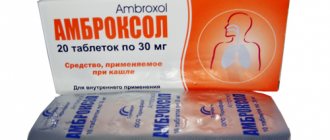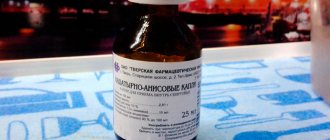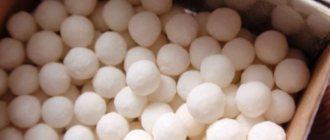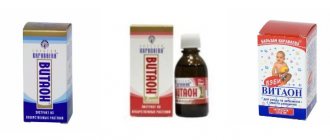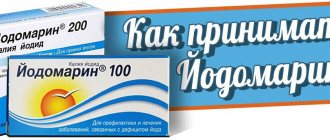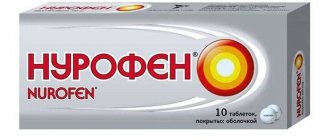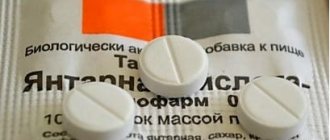Iodomarin is an iodine-containing drug that is taken for the treatment and prevention of iodine balance for both adults and children.
Iodomarin comes in two types: 100 and 200. They have one difference - this is the dosage.
The medicine is available only in the form of tablets, which are round in shape and white or slightly grayish in color.
Iodomarin 100 is available in jars. Each jar contains 50 and 100 tablets of 100 mcg each. iodine in each, and iodomarin 200 is available in blisters of 50 and 100 pieces per pack. Each tablet contains 200 mcg of iodine.
Tablets must be stored in a dark place inaccessible to children at a temperature of 10−25 degrees. The shelf life of the drug is 3 years.
Composition per 1 tablet:
Active substance:
potassium iodide - 0.131 mg (corresponding to 0.1 mg of iodine);
Excipients:
lactose monohydrate, magnesium hydroxycarbonate, gelatin, sodium carboxymethyl starch, colloidal silicon dioxide, magnesium stearate.
Description: round flat-cylindrical tablets of white or almost white color, with a chamfer and a score on one side.
Pharmacotherapeutic group: thyroxine synthesis regulator - iodine drug ATC code: H03SA
Pharmacological properties
Pharmacodynamics
Iodine is a vital trace element that is a component of the thyroid hormones - thyroxine and triiodothyronine. Thyroid hormones are involved in the development of all organs and systems, in the regulation of metabolic processes in the body: they are responsible for the exchange of proteins, fats, carbohydrates and energy in the body, regulate the activity of the brain, the nervous and cardiovascular systems of the reproductive and mammary glands, as well as the growth and child development.
Iodine deficiency is especially dangerous for children, adolescents, pregnant and lactating women.
Should I take Iodomarin while breastfeeding?
“Iodomarin” is simply necessary for nursing mothers, since its use allows mother and child to receive the required daily dose of iodine. If necessary, iodine deficiency can be replenished with natural foods.
The use of “Iodomarin” during lactation and breastfeeding promotes the growth and development of the newborn. Considering the beneficial properties, most attending physicians recommend that young mothers take medications containing iodine.
Since each organism is individual, before you start taking Iodomarin, you need to undergo an examination and consult with a specialist, since for some categories of people drugs containing iodine are contraindicated and can cause irreparable harm to the body.
Pharmacokinetics
Suction
When taken orally, potassium iodide is almost completely absorbed in the small intestine.
Distribution
The average volume of distribution for healthy individuals is approximately 23 L (38% of body weight). The normal plasma iodine concentration ranges from 0.1 to 0.5 μg/dL. Accumulates in the thyroid gland, salivary glands, mammary glands and stomach tissues. The concentration in saliva, gastric juice and breast milk is approximately 30 times higher than in blood plasma.
Removal
Excreted by the kidneys, the concentration of iodine in urine relative to creatinine (mcg/g) is an indicator of its intake into the body.
Contraindications
- hypersensitivity to potassium iodide and/or any excipient in the drug;
- manifest hyperthyroidism;
- subclinical hyperthyroidism - in doses exceeding 150 mcg of iodine per day;
- solitary toxic adenomas of the thyroid gland and functional autonomy of the thyroid gland (focal and diffuse), nodular toxic goiter (with the exception of preoperative therapy for the purpose of blocking the thyroid gland);
- lactose intolerance, lactase deficiency, glucose-galactose malabsorption syndrome;
- Dühring's herpetiformis (senile) dermatitis.
The drug should not be used for hypothyroidism, except in cases where the development of the latter is caused by severe iodine deficiency. The use of the drug should be avoided during therapy with radioactive iodine, the presence or suspicion of thyroid cancer.
Analogues of Iodomarin
Today, domestic manufacturers sell analogues of Iodomarin, which cost much less and have the same beneficial properties. Among the full-fledged substitutes it is worth noting:
- potassium iodide - "Reneval";
- "Microiodide";
- "Polyoxydin".
In Ukraine, “Iodine Normil” and “Antistriumin Micro” are popular. If we consider foreign manufacturers involved in the supply of “Iodomarin”, they are distinguished here:
- "Yodilife";
- "Iodirox";
- "Vitrium Yod".
The principle of action of drugs is similar. Judging by consumer reviews, these drugs are no worse than the well-known “Iodomarin”.
Use during pregnancy and breastfeeding
During pregnancy and breastfeeding, the need for Iodine increases, so it is especially important to use the drug Yodomarin® 100 in sufficient doses to ensure adequate intake of iodine into the body. Potassium iodide passes through the placenta and into breast milk. If a nursing woman takes potassium iodide, additional administration of the drug to breastfed infants is not required.
The use of the drug during pregnancy and breastfeeding is possible only in recommended doses. When carrying out therapy, it is necessary to take into account the amount of iodine supplied with food.
Indications for use of Iodomarin
Iodine is a substance that must be supplied to the human body daily. Due to the beneficial properties of the drug, doctors prescribe it to prevent diseases caused by iodine deficiency.
The most common disease is the appearance of goiter, which forms not only in adults, but also in children. There are several types of goiter, it all depends on the nature of the disease. Highlight:
- endemic;
- euthyroid;
- non-toxic;
- diffuse.
Iodine deficiency in the body can be recognized by specific symptoms. A person’s body temperature rises, drowsiness and anxiety appear, and fatigue quickly sets in.
Important! Some people use Iodomarin before or after meals, but according to the instructions, the drug must be taken after meals.
Directions for use and doses
When determining the required dose of Yodomarin® 100, regional and individual characteristics of iodine intake from food must be taken into account. This is especially important when prescribing the drug to newborns and children under 4 years of age.
Prevention of iodine deficiency diseases: Newborns and children:
50−100 mcg of iodine per day (1/2 - 1 tablet of the drug Yodomarin® 100);
Adolescents and adults:
100−200 mcg of iodine per day (1−2 tablets of Yodomarin® 100);
During pregnancy and breastfeeding:
100−200 mcg of iodine per day (1−2 tablets of Yodomarin® 100).
Prevention of goiter relapse after its surgical removal or after completion of goiter treatment with thyroid hormone preparations: 100−200 mcg of iodine daily (1−2 tablets of the drug Yodomarin® 100).
Treatment of euthyroid goiter: Newborns and children:
100−200 mcg of iodine per day (1−2 tablets of the drug Yodomarin® 100);
Adolescents and young adult patients:
200 mcg of iodine per day (2 tablets of Iodomarin® 100).
The daily dose of the drug should be taken in one dose, after meals, with a sufficient amount of liquid. When prescribing the drug to newborns and children under 3 years of age, it is recommended to dissolve the tablet in a small amount (1 tablespoon) of boiled water at room temperature.
The use of the drug for prophylactic purposes is carried out for, as a rule, several months or years, and often throughout life.
For the treatment of goiter in newborns, in most cases, 2-4 weeks are sufficient; in children, adolescents and adults it usually takes 6−12 months or more.
The duration of treatment is determined by the doctor.
Iodomarin 200 tab. 200 µg No. 100 28298
Description
White or almost white tablets, flat on both sides, with a notch on one side for division. Iodine contributes to the normal activity of the thyroid gland, the hormones of which ensure proper metabolism in the body, regulate the activity of the brain, nervous and cardiovascular systems, reproductive and mammary glands, child growth and development.
Compound
Iodomarin®100 Tablets 1 table. potassium iodide 131 mcg (corresponding to 100 mcg iodine) excipients: lactose monohydrate; magnesium carbonate basic light; gelatin; carboxymethyl starch sodium salt; highly dispersed silicon dioxide; magnesium stearate in glass bottles of 50 or 100 pcs.; 1 bottle in a cardboard box. Iodomarin®200 Tablets 1 table. potassium iodide 262 mcg (corresponding to 200 mcg iodine) excipients: lactose monohydrate; magnesium carbonate basic light; gelatin; carboxymethyl starch sodium salt; highly dispersed silicon dioxide; magnesium stearate in blister packs 25 pcs.; in a cardboard box 2 or 4 packages.
Application
Prevention of iodine deficiency diseases in areas with iodine deficiency, primarily in children, adolescents, pregnant and lactating women, treatment of diffuse non-toxic and euthyroid goiter in children (including newborns and adolescents) and adults. Recommended during pregnancy and breastfeeding use in doses of 200 mcg/day. With prophylactic use at any age, as well as with therapeutic use in newborns, children and adolescents, as a rule, no side effects are observed. In rare cases, constant use of the drug can lead to the development of “iodism”, which can be manifested by a metallic taste in the mouth, swelling and inflammation of the mucous membranes (runny nose, conjunctivitis, bronchitis), “iodine fever”, “iodine acne”. Extremely rare - Quincke's edema, exfoliative dermatitis. When using the drug at a dose of more than 150 mcg/day, latent hyperthyroidism can become manifest. When using doses from 300 to 1000 mcg/day, the development of hyperthyroidism is possible (especially in elderly patients suffering from goiter for a long period, in the presence of nodular or diffuse toxic goiter). The effect may be enhanced or weakened and the development of side effects when used together with lithium salts , potassium-sparing diuretics and substances that inhibit the formation of thyroid hormones. Orally, after meals, with a sufficient amount of liquid. For the prevention of goiter: adults and adolescent children - 100–200 mcg/day; newborns and children - 50–100 mcg/day; during pregnancy and breastfeeding - 200 mcg/day. Prevention of goiter relapse after surgery for goiter or after the end of drug treatment of goiter with thyroid hormone preparations: 100–200 mcg/day. Prophylactic use of the drug should be carried out for several years, often throughout life. Treatment of goiter: adults under 45 years old - 300–500 mcg/day; newborns, children and adolescents - 100–200 mcg/day; course of treatment for newborns - 2–4 weeks; in children, adolescents and adults - 6–12 months or more (according to the decision of the attending physician). Hypersensitivity to iodine, hyperfunction of the thyroid gland, toxic thyroid adenoma, nodular goiter when using doses of 300–1000 mcg/day (with the exception of preoperative iodine therapy) , Dühring's herpetiformis (senile) dermatitis.
Possible product names
- Iodomarin 200 tablets 200 mcg. №100
- IODOMARINE 200 MCG TAB. №100
- IODOMARINE 200 N100 TABLE (POTASSIUM IODIDE 200)
- IODOMARINE 200 TABLE. 0.2 MG X100
- IODOMARINE 200 TAB. 0.2MG No. 100
- IODOMARINE 200 0.2MG TAB. X100 (R)
- (Iodomarin 200) Iodomarin 200 tablets. 200 mcg. №100
Overdose
Symptoms:
staining of the mucous membranes brown, reflex vomiting (if there are starch-containing components in the food, the vomit becomes blue), abdominal pain and diarrhea (blood may be present in the stool). In severe cases, dehydration and shock may develop. In rare cases, esophageal stenosis has occurred. Cases of death were observed only after taking large amounts of iodine (30-250 ml of iodine tincture).
In rare cases, long-term overdose of potassium iodide can lead to the development of so-called “iodism”, i.e. iodine intoxication: metallic taste in the mouth, swelling and irritation of the mucous membranes (runny nose, conjunctivitis, gastroenteritis, bronchitis). Potassium iodide can activate latent inflammatory processes such as tuberculosis. Possible development of edema, erythema, acne-like and bullous rash, hemorrhage, fever and irritability.
Treatment for acute intoxication:
gastric lavage with a solution of starch, protein or 5% sodium thiosulfate solution until all traces of iodine are removed. Symptomatic treatment of water-electrolyte imbalances, anti-shock therapy.
Treatment for chronic intoxication:
withdrawal of potassium iodide.
Treatment of iodine-induced hypothyroidism:
abolition of potassium iodide, normalization of metabolism with the help of thyroid hormones.
Treatment of iodine-induced thyrotoxicosis:
for mild forms of treatment is not required; in severe forms, thyreostatic therapy is required (the effect of which is always delayed). In severe cases (thyrotoxic crisis), intensive therapy, plasmapheresis or thyroidectomy are necessary.
In the case of hyperthyroidism, we cannot talk about an overdose as such, since hyperthyroidism can be caused by an amount of iodine that is normal in other countries.
Potassium iodide
The drug is a cheaper substitute for Iodomarin, it operates on the basis of the active ingredient of the same name and is produced in tablet form.
Indications
The product should be taken after eating, and be sure to drink plenty of liquid.
Potassium Iodide is prescribed in the following cases:
- as a preventive measure for iodine deficiency diseases, especially in areas with severe iodine deficiency;
- to prevent the recurrence of goiter after surgery on the thyroid gland;
- for the treatment of goiter and other diseases caused by iodine deficiency in children (from infancy to adolescence) and adults;
- for hyperthyroidism, thyrotoxic crisis, in preparation for thyroid section;
- for various inflammations of the upper respiratory tract (including bronchial asthma), accompanied by difficult secretion;
- to protect against radiation and prevent the absorption of radioactive iodine by the thyroid gland;
- as an adjuvant treatment for syphilis;
- for cataracts, opacities of the cornea or vitreous body, hemorrhages in the membranes of the eye, conjunctivitis, etc.;
- for inflammatory processes in the salivary glands in dentistry.
Contraindications to the prescription of the drug may be: high sensitivity to iodine, hyperfunction, toxic adenoma and tumors (non-malignant) of the thyroid gland; tuberculosis, acne, nephritis, etc.
Interaction with other drugs
Iodine deficiency increases, and iodine excess decreases, the effectiveness of hyperthyroidism treatment with antithyroid drugs. Therefore, before or during treatment for hyperthyroidism, it is recommended to avoid any iodine intake if possible. On the other hand, antithyroid drugs inhibit the conversion of iodine into an organic compound in the thyroid gland and, thus, can cause the formation of goiter.
Substances that enter the thyroid gland through the same mechanism as iodides can compete with iodine and inhibit its uptake by the thyroid gland (for example, perchlorate, which also inhibits the recycling of iodides within the thyroid gland). Iodine absorption may also be reduced when using drugs that do not themselves enter the thyroid gland, for example, thiocyanate in concentrations exceeding 5 mg/dl.
Iodine uptake by the thyroid gland and its metabolism are stimulated by endogenous and exogenously administered thyroid-stimulating hormone (TSH).
Simultaneous treatment with high doses of iodine and lithium salts can contribute to the occurrence of goiter and hypothyroidism. High doses of potassium iodide in combination with potassium-sparing diuretics can lead to hyperkalemia.
special instructions
It should be taken into account that during drug therapy in patients with renal failure, hyperkalemia may develop. Before starting therapy, it is necessary to exclude the presence of hyperthyroidism or nodular toxic goiter in the patient, as well as a history of these diseases. If there is a predisposition to autoimmune thyroid diseases, the formation of antibodies to thyroid peroxidase is possible. Saturation of the thyroid gland with iodine can prevent the accumulation of radioactive iodine used for therapeutic or diagnostic purposes. In this regard, it is not recommended to take the drug before carrying out activities using radioactive iodine.
L-Thyroxine
This German-made analogue of Iodomarin is a hormonal drug based on the component levothyroxine sodium, and is produced in the form of tablets with a dosage of 50, 75, 100, 150 mcg.
Application
Self-treatment with this drug is contraindicated, as it is fraught with hormonal imbalances and the development of thyrotoxicosis. For the purpose of prevention for thyroid diseases, the use of the product is also not recommended.
L-Thyroxine is released strictly according to a doctor’s prescription and is prescribed in the following cases:
- hypothyroidism;
- eutheroid goiter;
- for replacement therapy or prevention of goiter recurrence after surgery to cut the thyroid gland;
- as a combined or monotherapy in the treatment of diffuse toxic goiter;
- after surgery in the treatment of thyroid cancer;
- and also as a diagnostic tool during the thyroid suppression test procedure.
During pregnancy, you should not take the drug accompanied by thyreostatic drugs, and during the lactation period it is used under strict medical supervision with strict adherence to the prescribed dosages.
